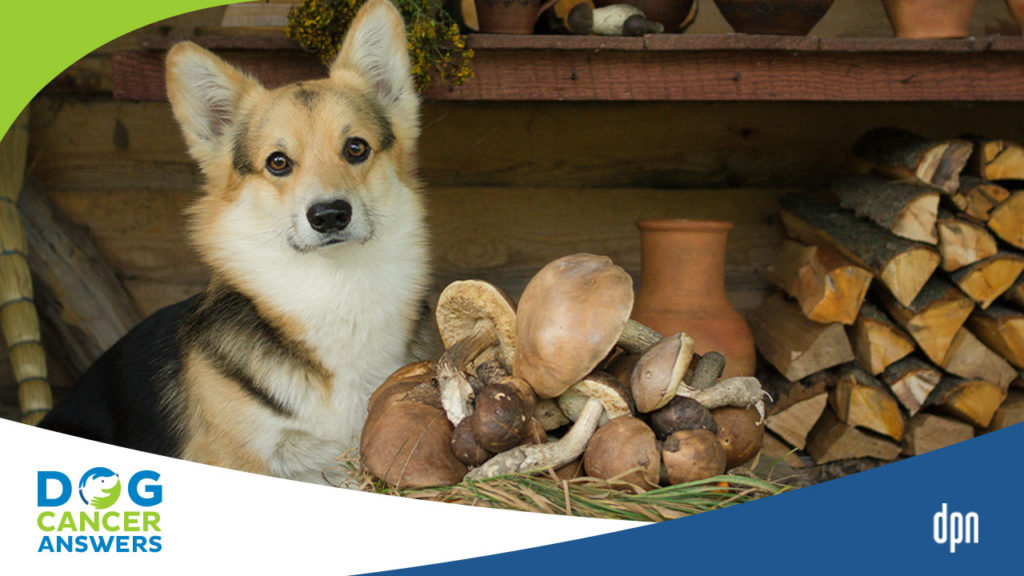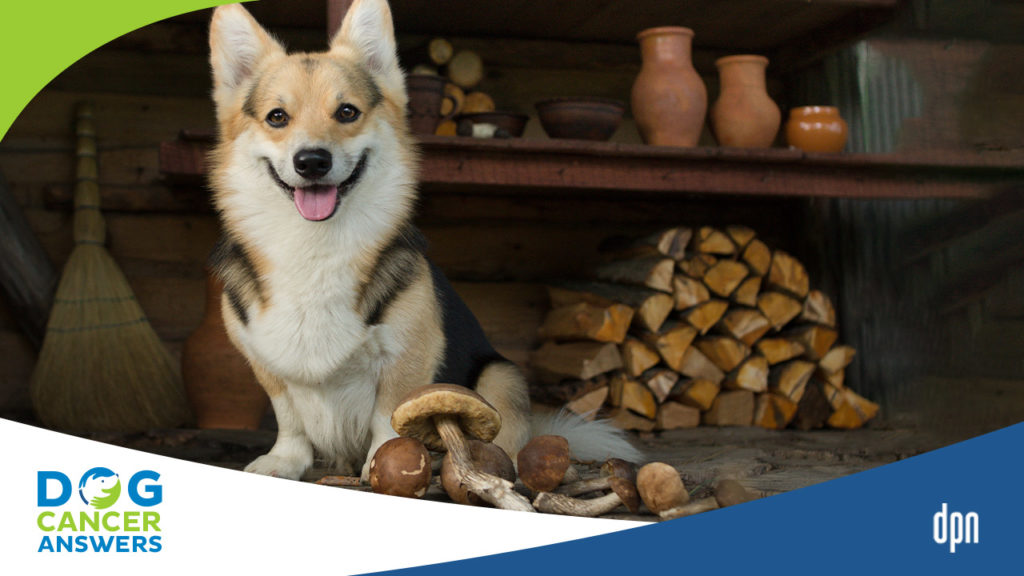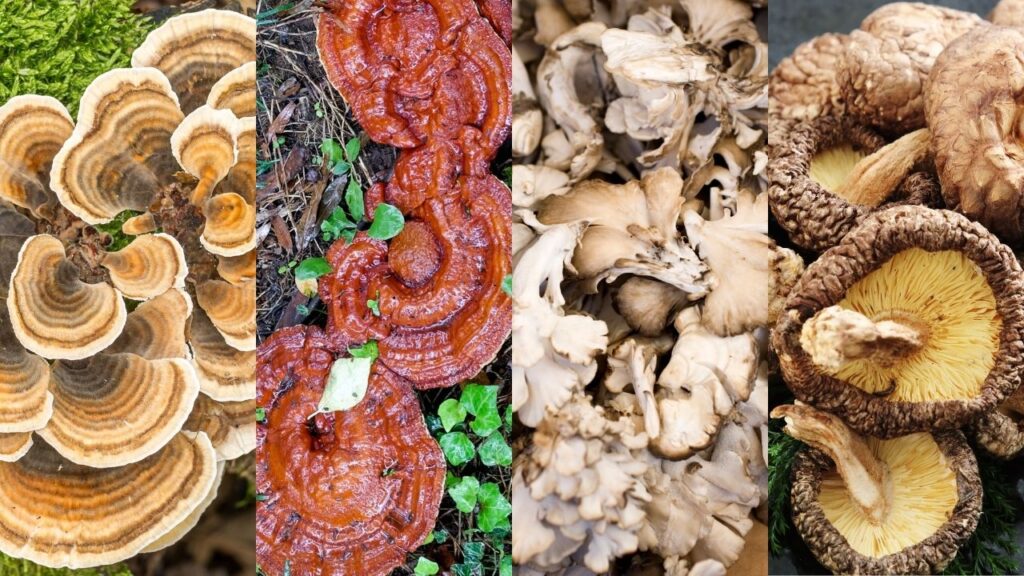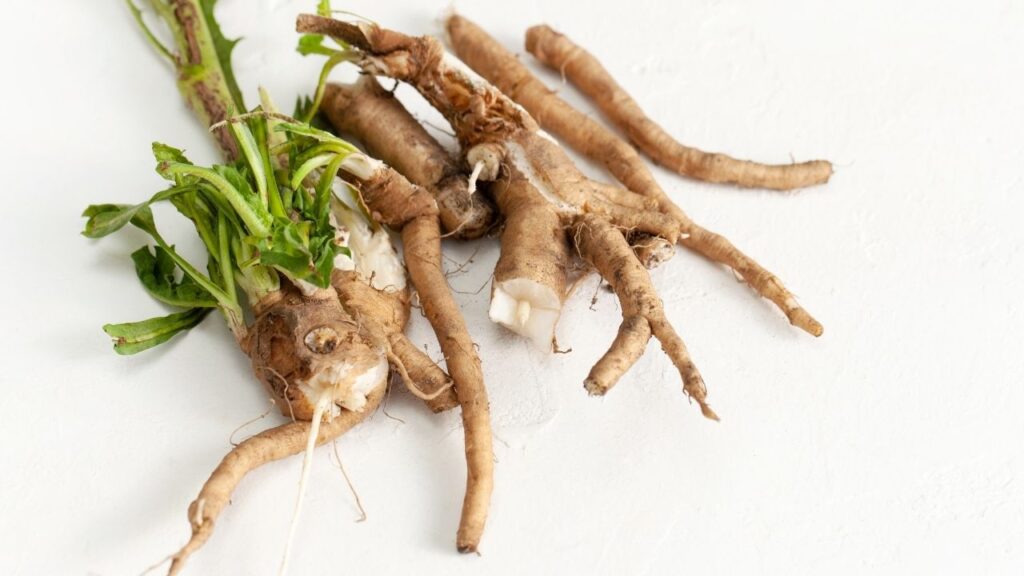Shiitake Mushrooms for Dogs
In addition to their excellent nutritional value, shiitake mushrooms have been shown to have many medicinal uses including cancer-fighting properties.
Key Takeaways
- Mushrooms are very good for dogs with cancer. Any mushroom that you can eat, your dog can eat.
- Shiitake mushrooms are very good for dogs in general, and may have cancer-fighting benefits for dogs with cancer.
- The beta-glucans in shiitake mushrooms may help activate the immune system in dogs with cancer, supporting their fight.
Food and Medicine for Ages
Lentinus edodes is a mushroom commonly known by its Japanese name, shiitake. Shiitake mushroom grows on a variety of trees in warm, moist climates predominantly in northeast Asia, though it has been reported to grow in a wide geographic area.5 Japan is the world leader in the production of this type of mushroom and it has been renowned in the far east (i.e. Japan, China, and Korea) as a food and medicine for thousands of years.
Shiitake mushrooms are the second most popular edible mushroom globally,4 making them easy to find in your local supermarket. Commercial preparations can also be found in health food stores and supermarkets in many countries.
Why Shiitake Mushrooms Are Healthy: Beta-Glucans
The cancer-fighting abilities of the shiitake mushroom are attributed to a specific type of polysaccharide, Beta-glucan (β-glucan), called “lentinan,” which was discovered in 1970.1,5 For the rest of this article, we will spell β-glucan in the common way, beta-glucan.
Beta-glucans come from various sources including fungi, plants, algae, animals, and bacteria, but those found in mushrooms are special because they can bind to receptors on the surface of immune cells, giving them immune-boosting properties.3
This means that beta-glucans from shiitake mushrooms primarily produce their cancer-fighting effects by activating immune responses in the body.2 Specifically, beta-glucans from shiitake mushrooms are able to activate:
- Natural killer (NK) cells which kill cancer cells1,7
- Macrophages which remove the dead cells through phagocytosis1
- T-helper cells which help activate other cells to produce antibodies and also promote apoptosis (natural cell death) and phagocytosis1
These actions can not only prevent cancers from developing and spreading, but also fight against cancers already present in the body.2
Lentinan also regulates hormonal factors in the body that are known to play a role in tumor growth, which may also contribute to its cancer-fighting abilities.1
Research in Humans
The cancer-fighting benefits of shiitake mushrooms have been studied for many years, though studies specifically in dogs are lacking. It is well documented that lentinan works best in fighting cancer when it is combined with other conventional chemotherapy and surgical treatments.1
In humans, lentinan combined with traditional chemotherapy has been shown to prolong survival times and improve quality of life in patients with gastric cancer, pancreatic cancer, colorectal cancer, and hepatocellular carcinoma (liver cancer).3
One study in people with gastric cancer showed that patients receiving lentinan and chemotherapy had a mean survival time of 189 days versus 49 days in patients treated with chemotherapy alone.4
In another human study, lentinan was shown to have antitumor activity and increase the survival time for three patients with inoperable gastric cancer.4
When to Not Use Shiitake Mushrooms for Dogs
Shiitake mushrooms are generally well tolerated in the diet, and there are few noted side effects or contraindications associated with lentinan products.
- If your dog is on chemotherapy, check with your oncologist about using shiitake mushrooms in the diet or as a supplement. They may want to avoid immune stimulating foods or supplements while your dog is getting chemo treatments.
- Immunosuppressive and hormonal agents such as B-benzylthioguanosine, thyroxine, hydrocortisone, and X-radiation have all been shown to reduce the antitumor effects of lentinan.1 If your dog is taking one of these medications or will be undergoing regular x-rays, shiitake mushrooms are less likely to be helpful.
- Because of its immune-boosting properties, you should use shiitake with caution if your dog has an immune-mediated disease.7
Be sure to discuss with your veterinarian or veterinary oncologist before starting your dog on any beta-glucan supplement.
Shiitake Mushroom Supplements
Since the amount of beta-glucan varies widely between individual mushrooms, if you want to use it as a therapeutic, it is recommended to use a beta-glucan supplement instead of relying on fresh mushrooms. This is because the anti-cancer effects of lentinan are dose dependent,2 so using a supplement will help you ensure you are giving your dog a therapeutic dose. Shiitake mushrooms are included in many mushroom blends. Your veterinarian will be able to help you select a high-quality supplement for your dog.
How to Prepare Shiitake Mushrooms for Dogs
It is OK, however, to also feed your dog fresh shiitake mushrooms if you like. You can cook them or feed them raw, and it is recommended to chop finely or puree before feeding to help your dog better absorb the nutrients.7 Dr. Demian Dressler’s Dog Cancer Diet recipe recommends including ½-¾ lb. of a vegetable mixture (including shiitake mushrooms) as part of the recipe to make four days’ worth of food for a 50 lb dog.8
Sourcing Shiitake
Because of their popularity, Shiitake mushrooms are readily available in most grocery stores. Many commercial preparations are also available online and in health food stores, with some being formulated specifically for dogs.
Topics
Did You Find This Helpful? Share It with Your Pack!
Use the buttons to share what you learned on social media, download a PDF, print this out, or email it to your veterinarian.






